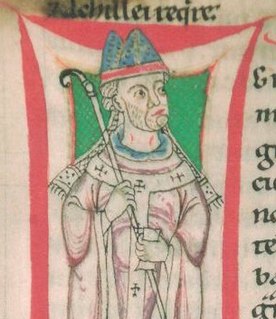A Quote by N. T. Wright
I came to Paul at quite an early age, having already studied Plato and Aristotle; and I found Paul easily their intellectual equal, though he was handling these amazing questions about God, Jesus, Israel, faith and so on. He continues to be an amazingly stimulating thinker, especially when we try to understand the flow of thought in letter after letter rather than just combing him for a few verses on 'our favourite topics', which, sadly, some Christian teachers do just as some journalists and broadcasters do!
Quote Topics
About
After
Age
Amazing
Broadcasters
Came
Christian
Christian Teachers
Early
Early Age
Easily
Equal
Faith
Favourite
Few
Flow
Found
God
Handling
Having
Him
Intellectual
Israel
Jesus
Journalists
Just
Letter
Our
Paul
Plato
Plato And Aristotle
Questions
Quite
Rather
Sadly
Some
Stimulating
Studied
Teachers
Than
Thinker
Though
Thought
Topics
Try
Understand
Verses
Which
Related Quotes
Through Plato, Aristotle came to believe in God; but Plato never attempted to prove His reality. Aristotle had to do so. Plato contemplated Him; Aristotle produced arguments to demonstrate Him. Plato never defined Him; but Aristotle thought God through logically, and concluded with entire satisfaction to himself that He was the Unmoved Mover.
From my student days I found him a compelling and fascinating, though often puzzling, figure. It's a lifelong fascination now and I don't expect that to stop! His vision of God, God's faithfulness, God's purposes and so on is so much bigger and richer than almost any subsequent Christian thinker has ever managed. In addition, I have always loved ancient history, especially the history of the early Roman empire, and of course Paul fits right into that.
Darling, You asked me to write you a letter, so I am writing you a letter. I do not know why I am writing you this letter, or what this letter is supposed to be about, but I am writing it nonetheless, because I love you very much and trust that you have some good purpose for having me write this letter. I hope that one day you will have the experience of doing something you do not understand for someone you love. Your father
I reached out to [Brett Favre] early on; sent him some of my books and a letter. Then I had two or three arranged times with him, and was blown off. Then I sent him another letter, and he sent me a text, explaining that he didn't wish to talk. I'm not mad - it's his right, obviously. Plus, his family members were amazingly open and cool.
There is a time when every person who encounters Jesus, who believes Jesus is the Son of God, decides that they will spend their life following Him. Some people, like the Apostle Paul, make this decision the minute they meet Him, the minute they become a Christian. Others, like the Apostle Peter, endure years of half-hearted commitment and spiritual confusion before leaping in with all their passion. Still others may enjoy some benefits of God's love and grace without entering into the true joy of a marriage with their maker.
Lukewarm people feel secure because they attend church, made a profession of faith at age twelve, were baptized, come from a Christian family, vote Republican, or live in America. Just as the prophets in the Old Testament warned Israel that they were not safe just because they lived in the land of Israel, so we are not safe just because we wear the label 'Christian' or because some people persist in calling us a 'Christian nation.
Paul commands: 'Therefore, brethren, stand fast and hold the Traditions which you have been taught, whether by word or by our letter.' From this it is clear that they did not hand down everything by letter, but there is much also that was not written. Like that which was written, the unwritten too is worthy of belief. So let us regard the Tradition of the Church also as worthy of belief. Is it a Tradition? Seek no further.





































